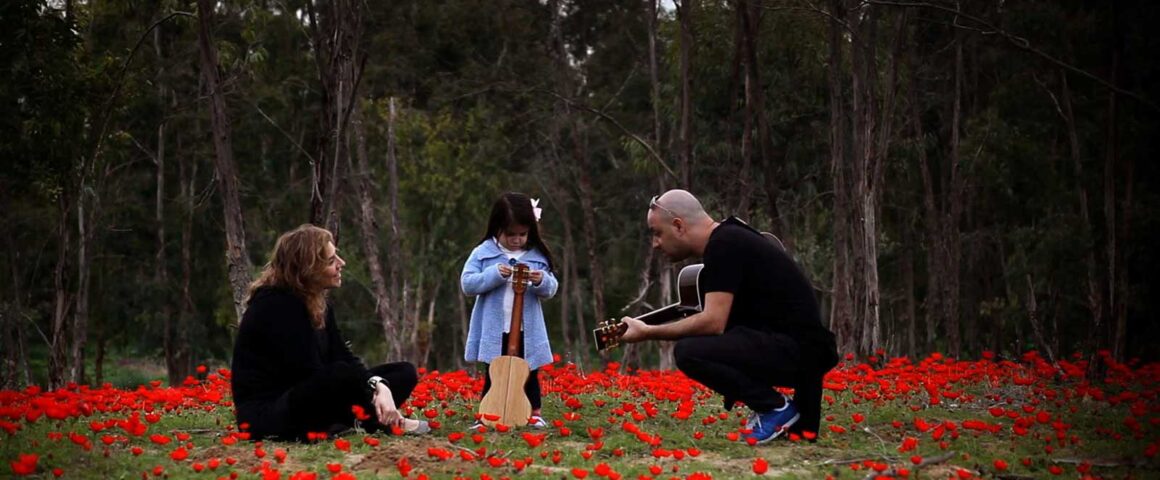The impact of a documentary is generally determined by either the power of the filmmaking or the potency of the subject matter. Of course, the best documentaries are those that draw strength from both areas of the process, but those are rarer than the docs that earn points for simply finding a great topic and position from which to dissect it. Laura Bialis’ Rock in the Red Zone is certainly an example of a documentary that benefits from the story that unfolds instead of the actual telling of that story, but what a strong subject Bialis has set her sights on.
This is a personal picture that often plays like a travelogue capturing both the horror and wonder of living in Sderot, a small Israeli town whose close proximity to Gaza has made it the target of constant rocket attacks by Hamas militants. The constancy of these attacks is overwhelming even to merely comprehend, because the Sderot residents hear the red alert sirens and have to run for cover several times a day. As a result, the town has become known as the “bomb shelter capital of the world,” which is surely a very depressing distinction.
But from the rubble left by the endless attacks, a burgeoning music movement has emerged and it’s here that Bialis settles her focus on. She becomes quickly enamored with the passionate pleas for peace contained within the Sderot music scene and the heartfelt manner in which the songs have given the town an identity. A few key interviews stress the fact that Sderot music is not only a means of release for its citizens, but has also been instrumental in feeding and growing the Israeli music industry as a whole.
It’s a source of pride and solidarity that Sderot has something to offer the nation that has seemingly turned its back on the besieged citizens who regularly have to run for cover at a moment’s notice. There’s a lot of understandable hurt and anger and fear deeply set in the people of Sderot, especially the younger generation, but Bialis finds joy and kindness and optimism, too, so she pursues that angle. The sense of danger is well attended to, though, as stories of devastation still pepper the Sderot daily experience.
The natural question for an outsider is “why not just pack up and leave Sderot?” It’s a question that Bialis seems to be pondering as well, even as she falls under the spell of the apparently magical place, and the musician citizens who are the focus respond simply and honestly. It’s their home and they feel a profound connection to the spot where their parents and grandparents were dropped off and left to build a community out of what was allegedly closer in design then to a refugee camp than an actual town.
Even with such an explanation, it’s a little difficult to understand why a profound connection trumps significantly decreasing your chances of getting blown up, but Bialis is so head over heels for Sderot that she doesn’t dig any further. Perhaps the point is that we should be so charmed by the Sderot spirit that we accept the risk along with the citizens. Either way, someone has to stand up and make the town’s voice heard and the music and its artists have bravely adopted that role.
Bialis covers plenty of territory here, providing insight on Sderot’s history and making clear how real the hellish dangers of the rocket attacks actually are. But there’s a lack of foresight that makes the picture stumble a bit. Late in the movie, a love story emerges and while it’s understandable that Bialis didn’t want the romance to take over her main focus, it feels somewhat shoehorned into the narrative. Once established, it begins to occupy quite a bit of screentime, which would be fine if it didn’t essentially come out of nowhere. Without any build-up to support it, the personal touch the romantic pairing adds fizzles instead of providing a spark.
Bialis manages to weave this aspect of her own journey through the main message of Sderot’s enchanting qualities and it would be silly to suggest she ignore all the growth and change she’s experienced as a result of her initial visit to the Israeli town. But as she gets more intimate with her focus, the movie suffers something of an emotional disconnect. It’s certainly more difficult to communicate the intangible magic of a community than it is to depict the horrors of constantly raining rockets and all Bialis can do to balance the scales is speak from the heart.
Even as it struggles in the final stretch, Rock in the Red Zone makes for an interesting watch because it is an eye-opener about a small town surviving in horrible conditions as observed by an outsider who becomes an insider. That a thriving music scene is the definitive source of hope is additionally intriguing. It’s a great subject for a documentary even if the result isn’t necessarily great documentary filmmaking.




'Movie Review: Rock in the Red Zone (2015)' has no comments